As the complexity of projects accelerates in the modern business world, staying on top of various project metrics becomes increasingly challenging. A project health dashboard is an innovative solution to this issue, serving as an indelible manager and team member tool for the project.
This crucial tool systematically compiles data from various sources to provide a snapshot of the project's current standing in real time. We delve into the realm of project health dashboards to bring you four compelling reasons why every project manager should consider integrating this tool into their project management strategy.
Understanding its essential role could lead to better project outcomes, increased efficiency, and overall project success.
In this article:
- What is a project health dashboard?
- Importance of a project health dashboard
- Benefits of a project health dashboard
- Track your project health with Rocketlane
- FAQs
What is a project health dashboard?
A project health dashboard is a visual tool that provides an overview of a project's current status and performance. It displays key performance indicators (KPIs), metrics, and data in a clear and concise manner, allowing project managers and stakeholders to track the health and progress of a project easily.
The dashboard typically includes information on project milestones, budget, schedule, risk levels, resource allocation, and other relevant project data.
A project health dashboard helps identify potential risks and issues at an early stage by aggregating and visualizing project data. It enables project teams to proactively recognize deviations from the plan, identify bottlenecks, and take necessary actions to mitigate risks. With timely identification and intervention, project delays and failures can be minimized.
4 reasons why you need a project health dashboard
Project management is a complex endeavor that requires careful planning, resource allocation, and effective execution. To ensure success, project managers and stakeholders need the ability to monitor and track a project's health and progress continuously.
This is where a project health dashboard comes into play. A project health dashboard provides a consolidated view of KPIs, metrics, and data, offering real-time insights into the project's status and performance.
We shall explore the importance of integrating a project health dashboard into your project management toolkit.
1. Improved visibility and transparency
One of the key reasons why a project health dashboard is important is because it significantly improves visibility and transparency. In a complex project, keeping track of all the moving parts and ensuring everyone is on the same page can be challenging.
With a project health dashboard, stakeholders and team members can easily access real-time information about the project's progress, status, and any potential roadblocks. This increased visibility enables better decision-making and helps teams proactively address any issues or risks before they escalate.
A dashboard fosters trust and collaboration among team members and stakeholders by providing a transparent view of project performance, leading to better outcomes and project success.
2. Early identification of risks and issues
In any project, it's crucial to understand potential risks and issues that could arise clearly. That's where an effective project health dashboard comes into play. Monitoring and tracking key project metrics in real-time allows for early identification of risks and issues before they escalate.
This proactive approach enables project managers and stakeholders to make informed decisions, allocate resources accordingly, and take necessary actions to mitigate or resolve these challenges.
Ultimately, early identification of risks and issues minimizes the impact on the project timeline and budget and enhances overall project success and client satisfaction.
3. Enhanced decision-making and resource allocation
A project health dashboard plays a crucial role in enhancing decision-making and resource allocation. Providing real-time and accurate project data enables project managers and stakeholders to make informed choices.
With a clear overview of project progress, risks, and issues, decision-makers can identify areas that require attention and take necessary action. This empowers them to make effective decisions, such as adjusting timelines, reallocating resources, or mitigating risks promptly.
The dashboard also helps with resource allocation. Decision-makers gain insights into resource bottlenecks, underutilization, or overallocation by visualizing resource availability and utilization.
This information aids in optimizing resource allocation, ensuring that the right resources are assigned to the right tasks at the right time. This not only improves project efficiency but also helps to prevent burnout and excessive workload for team members.
4. Facilitation of communication and collaboration
Facilitation of communication and collaboration is a crucial aspect of project management, and a project health dashboard can greatly aid in achieving this. The dashboard ensures that everyone involved is on the same page by providing real-time updates on project progress, risks, and issues.
It becomes easier to identify bottlenecks, address concerns, and make informed decisions. Team members can collaborate effectively, with access to relevant information at their fingertips. Communication gaps are narrowed, and discussions become more focused and productive.
The project health dashboard also serves as a centralized repository of project-related documents, ensuring that everyone can access important information easily. Ultimately, it fosters a sense of teamwork and empowers individuals to work together toward project success.
Key metrics to track your project health
As organizations embark on projects of all sizes and complexities, one fundamental concern remains constant - ensuring the successful delivery within the scoped time and resources.
When it comes to gauging project performance and overall health, it is vital to go beyond the superficial tracking of deadlines and budgets. This is where project health dashboards play an instrumental role in designing to provide an overview of multidimensional project aspects.
More than just a progress report, they offer insights into key metrics that paint a comprehensive, real-time picture of your project's health. Here are some key metrics you need to monitor to ensure optimal project performance.
1. Budget vs. forecast
When it comes to tracking the health of a project, one important aspect to consider is the budget versus the forecast. Your project budget represents the estimated costs you have planned, while the forecast predicts the anticipated spending as the project progresses.
Comparing the budget against the forecast helps you gain insights into the project's financial health and make necessary adjustments if needed. If the forecast exceeds the budget, it may indicate potential cost overruns and the need to reassess your spending.
On the other hand, if the forecast is less than the budget, it could mean that you have room for additional investments or savings. Monitoring this metric ensures that your project stays on track financially.
Customer satisfaction (CSAT)
Customer satisfaction provides insights into how satisfied your customers are with their overall experience during the project. Monitoring CSAT can help you identify areas where improvements can be made to enhance customer satisfaction and loyalty.
One way to measure CSAT is through customer surveys or feedback forms, allowing you to gather valuable insights directly from your customers.
Analyzing these scores over time enables you to identify trends and take proactive measures to address any issues before they escalate. Remember, a happy customer is a key indicator of a successful project.
Team efficiency
Ensuring team efficiency is crucial in tracking the overall health of your project. Measuring specific key metrics helps you gauge how well your team is performing and make necessary improvements.
One metric to consider is the team's productivity rate, which measures their output over a certain time period. Another important metric is the team's ability to meet deadlines. This can be measured by the number of tasks completed on time versus those that are delayed.
You can also track team collaboration and communication through metrics like response time to emails and participation in team meetings. Monitoring team efficiency helps identify areas for improvement and ensure your project stays on track.
Risk management
Effective risk management is crucial for keeping your project on track and ensuring its success. You can minimize potential risks to your project's health by addressing them early on.
There are several key metrics you should track to gauge the effectiveness of your risk management efforts. These include the number of risk incidents, their severity, and the time it takes to identify and mitigate them.
Monitoring the overall risk exposure and regularly assessing the effectiveness of risk mitigation strategies will also help you maintain a healthy project and address any potential roadblocks before they become significant issues.
Resource capacity
Resource capacity refers to your team members' availability and ability to complete tasks within a given timeframe. Keeping track of your resources helps spread work fairly, prevents overload, and avoids burnouts or project delays.
To better evaluate and understand your resource capacity, monitoring a few key metrics is helpful. One important metric is resource utilization, which measures the percentage of time your team members spend actively working on project tasks. This metric provides insights into how effectively your resources are being utilized.
Another metric to keep an eye on is resource availability. This metric quantifies the amount of time individuals are available to work on project activities. By tracking resource availability, you can gauge the capacity and availability of your team members, helping you make informed decisions when assigning tasks and managing workloads.
Track your project health with Rocketlane
A healthy project not only meets deadlines and stays within budget, but it also fosters collaboration, prevents bottlenecks, and instills a sense of accountability among team members. It provides stakeholders with visibility into progress, mitigates risks, and allows for timely adjustments to keep things on track.
With its user-friendly interface and comprehensive suite of features, Rocketlane's PSA tool empowers project managers, team leads, and contributors to track and optimize project health seamlessly. Here are some key features of Rocketlane that can aid in project health tracking.
1. Project dashboards
Rocketlane provides customizable project dashboards that offer a visual representation of key project metrics and KPIs. You can easily track metrics like task progress, resource allocation, customer feedback, and more in a centralized and easily accessible dashboard.
2. Task and milestone tracking
Rocketlane allows you to create and assign tasks, set deadlines, and track their progress. You can monitor task completion rates, identify bottlenecks, and ensure that the project is on track to meet its milestones.
3. Collaboration and communication
Rocketlane facilitates seamless communication and collaboration among team members and stakeholders. You can have conversations, share updates, and provide feedback directly within the platform, ensuring everyone stays aligned and informed.
4. Customer feedback management
Rocketlane enables you to gather and manage customer feedback effectively. You can track customer requests, prioritize them, and ensure that the project addresses their needs and expectations. This helps improve customer satisfaction and project success.
5. Document and file management
With Rocketlane, you can easily store and organize project-related documents, files, and resources. This ensures easy access to project information and promotes efficient collaboration among team members.
6. Issue and risk tracking
Rocketlane allows you to log and track project issues and risks. You can assign owners, set priorities, and track the progress of issue resolution or risk mitigation. This helps prevent potential roadblocks and ensures timely problem-solving.
7. Analytics and reporting
Rocketlane provides analytics and reporting capabilities that allow you to generate detailed reports on project health, progress, and performance. You can analyze the data, identify trends, and make informed decisions based on actionable insights.
{{demo}}
FAQs
1. What is a project health dashboard?
A project health dashboard is a visual tool that provides a snapshot of the overall status and progress of a project. It displays key performance indicators, metrics, and data in an easily understandable format.
2. Why do I need a project health dashboard?
A project health dashboard is essential for effective project management as it helps you monitor and track the health of your project in real-time. It provides a clear visual representation of key project metrics, allowing you to make informed decisions and take timely actions.
3. What benefits does a project health dashboard offer?
A project health dashboard offers several benefits, including improved project visibility, enhanced communication and collaboration, early detection of issues, effective resource allocation, and increased project success rates.
4. How can a project health dashboard improve project visibility?
A project health dashboard collects and presents relevant project data in a centralized location, making it easy for stakeholders to access real-time information on project status, milestones, risks, and issues. This improves project visibility and transparency.
5. Can a project health dashboard help with effective communication and collaboration?
A project health dashboard promotes effective communication and collaboration among project teams by providing a shared platform for accessing and sharing project data. It facilitates better coordination and alignment, reducing communication gaps and misunderstandings.
6. How does a project health dashboard enable early issue detection?
A project health dashboard allows you to monitor project metrics and key performance indicators regularly. By keeping a close eye on these indicators, you can quickly identify any deviations or issues, enabling timely intervention and resolution before they escalate.
7. How does a project health dashboard assist with resource allocation?
With a project health dashboard, you can easily track resource utilization, allocation, and availability. This data helps you make informed decisions regarding resource allocation, ensuring that the right resources are assigned to each task or project phase.
8. Can a project health dashboard increase project success rates?
Yes, a project health dashboard significantly improves project success rates. It allows you to identify and address potential risks and issues in a proactive manner, leading to better project outcomes and increased overall success.
9. Are project health dashboards suitable for all types of projects?
Yes, project health dashboards can be used for projects of varying sizes and complexities. Whether it's a small internal project or a large enterprise-level initiative, a health dashboard can provide valuable insights and aid in managing project health effectively.
10. What are key components of a project health dashboard?
Answer: A project health dashboard typically includes components such as project status, milestones, budget, schedule, risks, issues, resource allocation, team performance, and key performance indicators (KPIs). These components together give a comprehensive overview of the project's health.



.avif)


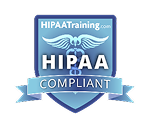
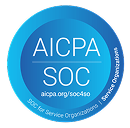
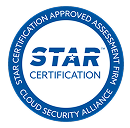
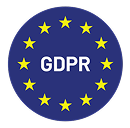










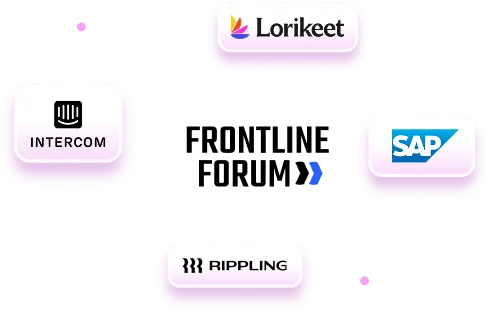
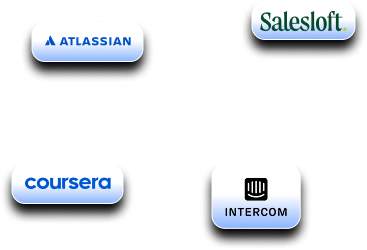


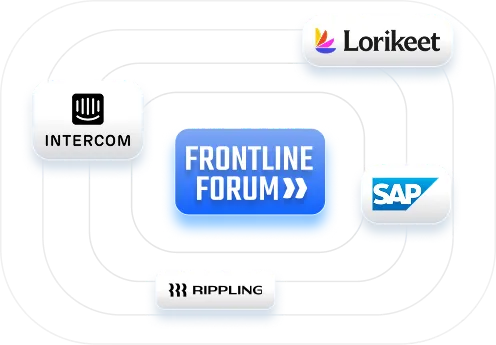
.webp)